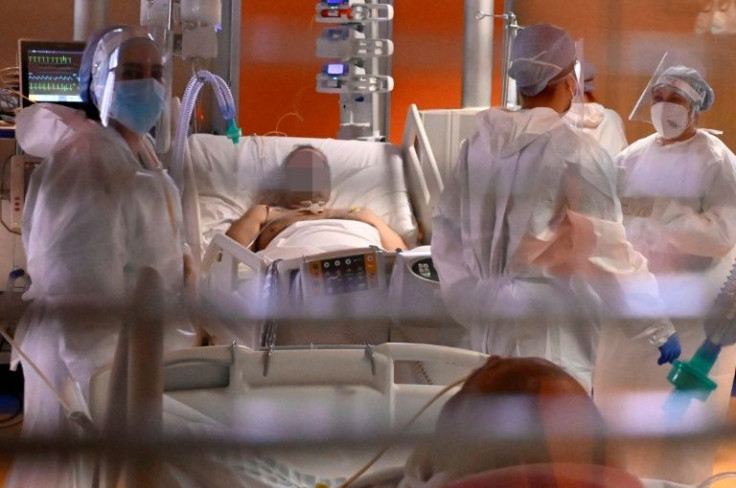New COVID-19 Variants Dodge Vaccine Antibodies, New Study Reveals
KEY POINTS
- Median antibody response against BA.4 and BA.5 among the previously infected was nearly 3 times lower than omicron's original strain
- It was lower by a factor of 3.3 among people who were two weeks into their Pfizer booster shots
- Omicron's subvariants will likely lead to infection surges in populations with high vaccine and natural immunity
Omicron's BA.4 and BA.5 subvariants "substantially" escaped antibody responses in people previously infected with COVID-19 and the fully vaccinated and boosted, new research showed.
The median neutralizing antibody response against the two subvariants among 27 previously infected people was lower than omicron's original strain by a factor of 2.9, according to a study published in the New England Journal of Medicine Wednesday.
It was 18.7 times lower compared to the response of WA1/2020, a version of the coronavirus that was taken from the United States' first COVID-19 patient at the start of the pandemic in January 2020.
Meanwhile, the median antibody concentration triggered by BA.4 and BA.5 was lower by a factor of 3.3 among another 27 participants who were two weeks into their Pfizer-BioNTech booster shots, the study’s researchers from Harvard Medical School's Beth Israel Deaconess Medical Center found.
The concentration was 21 times lower compared to the response to the WA1/2020 isolate.
"These data show that the ... BA.4 and BA.5 subvariants substantially escape neutralizing antibodies induced by both vaccination and infection," the researchers noted.
The subvariants' neutralizing antibody response compared to BA.1 and BA.2 also suggested that omicron has "continued to evolve with increasing neutralization escape."
"Our data suggest that these new omicron subvariants will likely be able to lead to surges of infections in populations with high levels of vaccine immunity as well as natural BA1 and BA2 immunity," Dan Barouch, an author of the paper and director of the Center for Virology and Vaccine Research at Beth Israel Deaconess Medical Center in Boston, wrote in an email to CNN.
Despite the findings, Barouch claimed that vaccine immunity "will still provide substantial protection against severe disease with BA.4 and BA.5.”
The newly published findings of the researchers from Beth Israel Deaconess Medical Center were similar to those discovered by scientists at Columbia University, who recently found that BA.4 and BA.5 were more likely to escape antibodies from the blood of fully vaccinated and boosted adults compared with other omicron subvariants.
BA.4 and BA.5 are the fastest-spreading COVID-19 variants reported up to date, per CNN.
The two caused an estimated 35% of new infections in the United States last week, the Centers for Disease Control and Prevention (CDC) said.
Overall, the U.S. has reported a total of 86,512,787 COVID-19 cases and 1,010,089 virus-related deaths, according to data provided by the CDC.

© Copyright IBTimes 2025. All rights reserved.





















